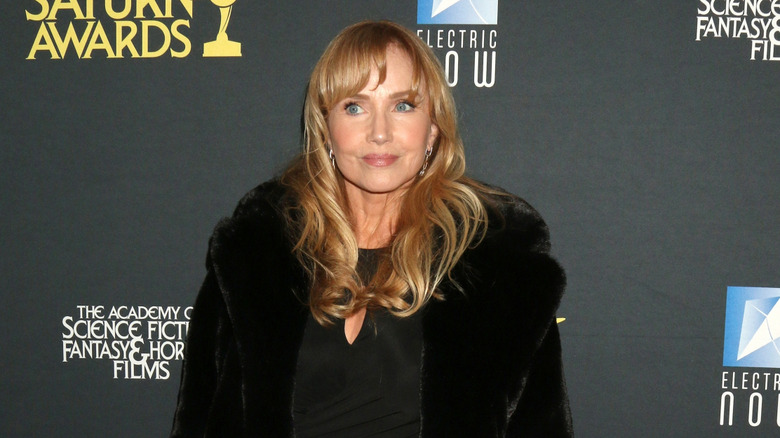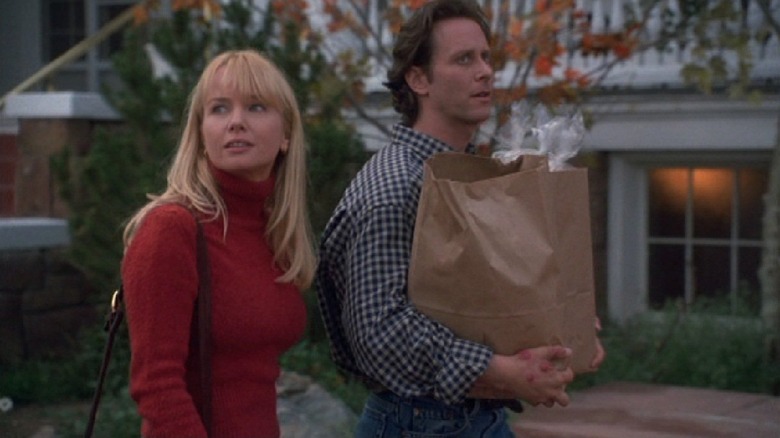Stephen King Hand-Picked The Lead Star For One Of His Worst Adaptations
Stephen King is often involved with the adaptations of his work, and isn't afraid to comment if he doesn't like something — just as he did for a '90s adaptation of one of his early short stories, which also earned 0% on Rotten Tomatoes. He's particularly vocal when it comes to his opinion of Stanley Kubrick's version of "The Shining," and that may be part of why he hand-picked director Mick Garris' female lead for the second attempt to adapt the novel, choosing Rebecca De Mornay to play Wendy Torrance. It wasn't the first time he was directly involved with the production of his work — he also wrote and directed the widely panned "Maximum Overdrive."
While speaking with The Morning Call in 2021, the actress described how she landed the part. She and King both happened to be at the same event, and a publicist let her know King wanted to see her. "Only minutes later, he sort of barged into the room along with his director, Mick Garris, and said, 'Rebecca, I'm a fan and I want you in my next movie,'" De Mornay said. "I thought he was a maniac and never thought that anything would come out of it." However, she was pleasantly surprised when she got the script two years later.
Nothing could live up to the original The Shining film
"The Shining" miniseries came out nearly two decades after Stanley Kubrick's film, and, initially, people thought it was a strong adaptation with more fidelity to the novel. However, in the 25 years that has passed since it first aired, audiences have reconsidered, determining that the series isn't as great as they thought it was. The New York Observer helped the charge in 2014, ranking it the worst of Stephen King's television adaptations to date. That created an opposite experience to the original movie. Kubrick's "The Shining" wasn't well-received on release, only to later be lauded as one of the best horror films of all time.
What the television project has over the earlier adaptation is that it is indeed more faithful to the source material. Kubrick took some liberties with his version, creating a vision that makes Jack visibly doomed from the outset. The director has said the changes he made had nothing to do with the original story, though his own opinion of King's writing is mostly complimentary. In return, King is similarly open about his thoughts on Kubrick's vision of "The Shining," noting his distaste for the changes to the two adult leads.
Unfortunately, what makes the miniseries more faithful is also its demise. Some of the aspects of the book, particularly the sequence with the topiaries, just don't translate as well to the screen, losing the menacing factor they had on the page. Overall, the miniseries lacks an iconic moment. Alternatively, the elevator and its nightmarish surge of blood may not have been something King wrote, but it created an iconic film moment. Kubrick's visual elements helped to give his movie the power it still has today, while the miniseries, decent, drab, and carried hard by Rebecca De Mornay's strong performance, continues to fade.

